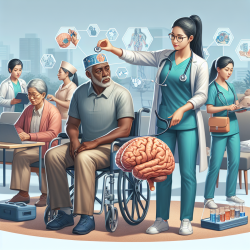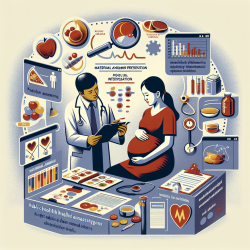Introduction
In the realm of healthcare, decision-making is a complex process, especially for those enrolled in Medicare. The research article "Family Members and Friends Who Help Beneficiaries Make Health Decisions" highlights the crucial role that family and friends play in assisting beneficiaries with health-related decisions. This blog aims to provide practitioners with insights on how they can leverage these findings to enhance their practice, particularly in the context of online therapy services for children.
The Role of Family and Friends
The study underscores that family members and friends often act as informal caregivers, providing emotional support, direct services, and assistance in navigating the healthcare system. This support is particularly vital for older adults who may face limitations in literacy, health literacy, and cognitive function. The involvement of family and friends can significantly influence the outcomes of healthcare decisions, making it imperative for practitioners to recognize and support this dynamic.
Implications for Practitioners
For practitioners, understanding the roles played by family and friends in health decision-making can lead to more effective therapy outcomes. Here are some key takeaways:
- Engagement: Encourage active participation of family members and friends in therapy sessions. Their insights and observations can provide valuable context and support for the child’s progress.
- Education: Provide clear and concise information to family members and friends about the therapy process and expected outcomes. This empowers them to make informed decisions and advocate effectively for the child.
- Support Systems: Develop support systems that include family and friends, offering them resources and guidance to better assist the child outside of therapy sessions.
Encouraging Further Research
While the study provides valuable insights, it also highlights the need for further research into the specific roles and impacts of family and friends in health decision-making. Practitioners are encouraged to explore these dynamics in their own practice settings, gathering data and sharing findings to contribute to the broader understanding of this critical area.
Conclusion
Family and friends are integral to the healthcare decision-making process, particularly for vulnerable populations. By recognizing and supporting their role, practitioners can enhance therapy outcomes and contribute to more effective healthcare delivery. For those interested in delving deeper into the research, the original study offers a comprehensive exploration of these dynamics.
To read the original research paper, please follow this link: Family Members and Friends Who Help Beneficiaries Make Health Decisions.










